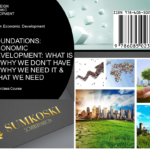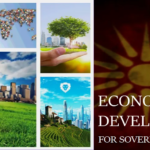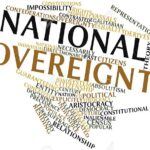

The final remnants of the Arab Spring era, which in 2011 began with the toppling of three long-time Middle East dictators, are disappearing with a whimper in Tunisia and with deadly bangs in Sudan.
During the past decade, demands for democracy in Egypt, Syria and Bahrain were crushed by military crackdowns. Civil wars and foreign intervention poisoned the ground for possible change in Libya, while Yemen descended into a proxy civil war with rival participation of Saudi Arabia and Iran.
Even democracies outside the Arab Spring context – in Lebanon, a tumultuous 80-year-old electoral democracy, and newcomer Iraq – are crippled by ethnic conflict and violent outside meddling.
The decade of failed efforts at Middle East transformation underscores a worldwide trend: democratic rule is in decline, whether in Hong Kong and Myanmar; or in Russia where President Vladimir Putin has perfected the art of “constitutional coups” – use of anti-democratic laws, endorsed by fraudulently elected legislators – to underwrite repression; or in Africa, which continues to produce or extend presidencies-for-life.
In the context of the budding US-China Cold War, such developments favor Beijing. China is spreading its influence economically through the Belt and Road Initiative, unencumbered by human and civil rights concerns. Its navy is being hosted in Middle Eastern ports once reserved for Americans.
US President Joe Biden, by way of contrast, declared last summer that the world is in a struggle between autocracy and democracy. Yet, his administration seems barely interested in the rolling collapse of democracies. His democracy-vs-autocracy comment seems to really refer to a contest between America and its friends against China, Russia and their clients and allies.
In that context, Tunisia and Sudan are marginal concerns.
In the 1990s, the collapse of the Soviet Union engendered a burst of democratic rule. In Europe, former Warsaw Pact Soviet allies adopted parliamentary democracy. So did former Soviet republics in the Baltics, Ukraine and Georgia. Some former Soviet states in Central Asia did, too, though all but one gradually slipped back to autocracy.

In that context, the Arab Spring represented a second democratic burst – except it failed.
Tunisia was the Arab Spring pioneer. In December 2010, a young vegetable salesman in Tunis set himself on fire after being humiliated by police. His suicide set off mass protests against the rule of Zine al-Abbedine Ben Ali. His police shot down about 340 protestors, but demonstrations persisted. Ben Ali fled within a month.
Tunisian parliamentary rule survived a decade of harsh political conflict, threats by Islamist fundamentalism and a pair of terrorist attacks. But for the past two years, a fractured parliament proved unable to deal with persistent economic problems and corruption. The coronavirus pandemic intensified hardship.
President Kais Saied, whose institutional role is normally limited to dissolving non-functioning legislatures, instead seized emergency powers for himself. Declaring himself public prosecutor, he authorized the arrest of at least four dozen opposition politicians and ordered police to break up protests.
“President Saied’s reassurances on human rights sound hollow when he concentrates power in his own hands, parliamentarians and other Tunisians suddenly start facing arbitrary restrictions on their freedom, and some are packed off to prison,” wrote Eric Goldstein, a senior North Africa researcher at Human Rights Watch.
Last month, Saied, having declined to call parliament back into session, named a new prime minister, reserved the right to name cabinet ministers and declared he would continue to rule by decree. Public protests broke out against his action but so did street demonstrations in favor. The split society permitted him to carry on.
Unlike Tunisia, Sudan wrote the final chapter of the Arab Spring. In 2019, following large anti-government protests, the Sudanese army ousted President Omar al-Bashir, who had held power for 30 years.
The country suffered from common Middle East ills: poverty, unemployment and corruption. Civil wars were practically endemic during Bashar’s rule. Masses of demonstrators had revived the common refrain of Arab Spring: “The people demand the fall of the regime.”

After the army deposed Bashir, generals shared power with civilian leaders until last month. General Abdel Fattah al-Burhan broke up the civilian-military junta and arrested numerous pro-democracy politicians, while his soldiers shot down scores of protestors in the street. Prime Minister Abdalla Hamdok and the entire civilian cabinet have been detained. Al-Burhan asserts that he wants to “rectify” Sudan’s journey to democracy.
It is difficult to concoct a one-size-fits-all explanation for the Arab Middle East’s return to autocracy. At a minimum, it represents a general failure of an assumption made in the 1990s: that free-market economies exported from the West would inevitably lead to sustained representative governments across the globe. Free elections were a focus but not the development of independent courts. Neither military power nor corruption was reined in.
New democracies were unable to overcome ethnic conflict and create national identities free from tribal and religious rivalries. Libya along with Lebanon and Iraq are sad examples. Each is beset by foreign intervention that exploit indigenous divisions: Russia, Turkey and Egypt in Libya; Iran in Lebanon and Iraq.
Once worldwide promoters of democracy, the US and other Western powers have mildly criticized the democratic backsliding in Tunisia and more harshly in Sudan, but to no effect.

President Biden directly denounced Sudan’s coup and withheld US$700 million in promised aid. But the generals in Khartoum may have reason to be unimpressed. Egypt, Saudi Arabia and Persian Gulf Emirates, all autocracies friendly to the US, support the takeover.
And Biden is soon to release $300 billion in aid to Cairo, despite Egypt’s Abdul Fattah al-Sisi’s seizure of power and killing of 800 Muslim Brotherhood protesters in a single day in 2013.
As for Tunisia, Biden has been silent, perhaps in hope Saied will reverse course. The US State Department suggested only that the crisis’ resolution should be “based on the Tunisian constitution.” Saied insists his actions are constitutionally based, so what’s the problem?
China’s President Xi Jinping isn’t burdened by past democracy promotion. He preaches a leap to prosperity without the messiness of elections, debate and opposition, and is uninterested in the internal governing of other countries.
Tunisia has signed infrastructure deals with China under the Belt and Road Initiative and joined China’s Asian Infrastructure Investment Bank. None of that has been affected by Tunisian turmoil. Chinese workers labor on infrastructure projects in Sudan, and their safety was the primary concern of Beijing’s statements on the coup.
The post Arab Spring’s last gasp favors China over US appeared first on Asia Times.






















